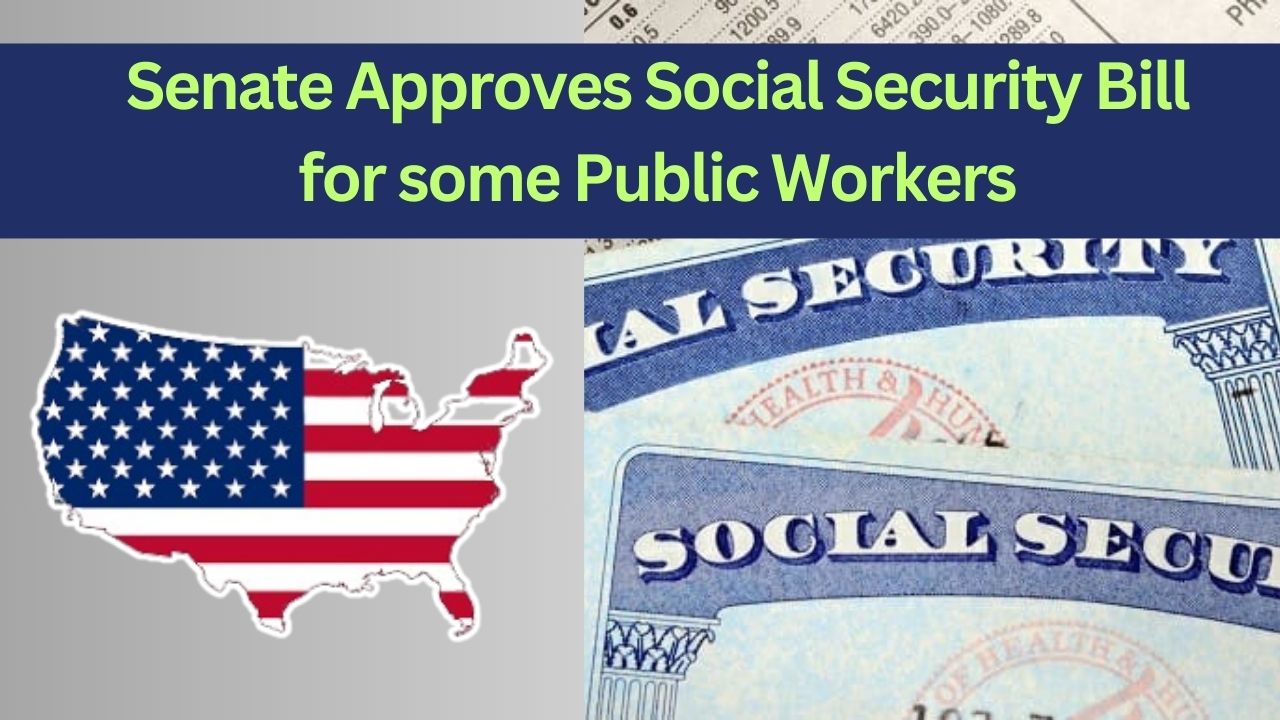In a significant step towards addressing long-standing inequities, the Senate passed the Social Security Fairness Act by a decisive vote of 76-20 early Saturday morning. This landmark legislation seeks to eliminate provisions that have impacted an estimated 3 million individuals, including teachers, firefighters, police officers, and other public workers.
Key Provisions of the Bill
The Social Security Fairness Act abolishes two controversial policies:
- Windfall Elimination Provision (WEP): Previously, this reduced Social Security benefits for individuals who received pensions or disability benefits from jobs that did not pay Social Security payroll taxes.
- Government Pension Offset (GPO): This policy decreased Social Security benefits for spouses, widows, and widowers who also earned government pension income.
These provisions, in place for decades, have been a source of contention for public service workers.
“You shouldn’t penalize people for income outside of a system when you’ve paid into it and earned that benefit,” said John Hatton, Vice President of Policy and Programs at the National Active and Retired Federal Employees Association.
Broad Bipartisan Support
The bill received enthusiastic backing from advocacy groups and organizations representing affected workers. It was passed by the House in November with a sweeping 327-member majority and now moves closer to becoming law.
Challenges and Financial Implications
While the passage of the bill marks a victory for public workers, it comes with a significant price tag. According to the Congressional Budget Office, the measure will cost an estimated $196 billion over 10 years.
This cost has raised concerns about the long-term sustainability of Social Security. Trustees project that the program’s trust fund for retirement benefits could be depleted in nine years, potentially reducing payable benefits to 79% of what beneficiaries are entitled to.
Opposition and Proposed Amendments
Sen. Rand Paul (R-Kentucky), a vocal critic of the bill, introduced an amendment to offset the costs by gradually raising the retirement age to 70 while accounting for life expectancy adjustments.
“To undo the damage made by this legislation, my amendment will strengthen Social Security by providing almost $400 billion in savings,” said Paul.
His amendment, however, was defeated. Paul and other senators argued that the bill’s additional costs could exacerbate financial pressures on the Social Security system.
Call for Comprehensive Reform
Advocates for Social Security reform have called for broader measures, including tax increases, to secure the program’s future while expanding benefits.
“Our preference was for this to be part of a much larger Social Security reform,” said Dan Adcock, Director of Government Relations at the National Committee to Preserve Social Security and Medicare.
Looking Ahead
As Congress navigates the complexities of Social Security reform, the passage of the Social Security Fairness Act represents a significant victory for public workers who have long campaigned for equitable benefits.
My Name is Chris Mueller , I Work as a Content Writer for Sugyan and I like Writing Articles
